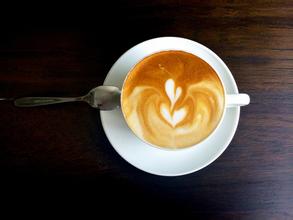Puerto Rican Coffee with strong Flavor and strong Flavor introduction to the characteristics of Fine Coffee beans in Manor area
In the middle of the 18th century, with the increasing number of immigrants and slaves, coffee became the main export.
Geographical location
Geographical location
On September 23, 1869, the people of Puerto Rico were in R. An uprising was held in the town of Larez (historically known as the "voice of Larez") under the leadership of Emmetrio Betons, which declared the establishment of a republic on the 24th and was later suppressed by the Spanish colonial army. After a long struggle, Puerto Rico was finally granted local self-government by Spain. However, it has been only one year since the island became an American colony after the Spanish-American War. [2]
In 1898, the Spanish-American War broke out and Spain was defeated. According to the Treaty of Paris, Puerto Rico was ceded to the United States. The administrative jurisdiction of the United States over Puerto Rico first took the form of a military junta. During its two years of governance of the island, the junta established schools, roads, railways, hospitals and health facilities. In 1900, the United States Congress established civilian control over the island. One of the two chambers of the Governor, the Cabinet and the Puerto Rican legislature is appointed by the President of the United States. Puerto Ricans elect another chamber of the legislature and a commissioner based in the capital who will represent the interests of the island in Washington and have a voice but no vote in Congress. Puerto Ricans are also exempt from United States taxes.
In 1917, the United States Congress passed the Jones Act, imposing "American citizenship" on the people of Puerto Rico.
In 1937, the Puerto Rican people were the leader of the Kuomintang of Puerto Rico P. Alvisu Campos launched an independent uprising in Ponsai, but was suppressed again.
In 1947 the United States Congress allowed the Governor to be elected.
On November 1, 1950, Puerto Rican national heroes Oscar Corazo and Grace Torres Sola failed to assassinate the president of the United States, and other Puerto Rican nationalists opened fire in the hallway of the House of Representatives, injuring several members of the House of Representatives.
On October 30, 1950, the people of Puerto Rico rebelled again and declared the establishment of the Republic of Puerto Rico, which failed on the 31st and more than 100 people were arrested.
In 1952, the United States granted Puerto Rico the status of a free federation and exercised autonomy, but important departments such as foreign affairs, defense and tariffs were still controlled by the United States. [1]
Since 1972, the United Nations Special Committee on Decolonization has repeatedly reaffirmed the inalienable right of the people of Puerto Rico to self-determination and independence.
Puerto Rico's coffee beans are carefully planted, pure, fragrant and heavy, of which the best coffee is Yauco Selecto, which means "Selecto". Yaocote Coffee is grown only on three farms in the southwest of the island, San Pedro, Caracolillo and La Juanita. It is a truly high-quality coffee with a strong flavor and a long aftertaste. The hills of southwestern Puerto Rico have a mild climate, a long period of plant maturity (from October to February) and high-quality clay. People here have been using an eco-friendly, intensive planting method, picking only fully ripe coffee beans and then flushing them in a drum device for 48 hours. Yaocote selected coffee beans are preserved with sheepskin before sale and will not be removed until order and delivery to ensure the best freshness of the coffee. Relevant U.S. government employees, such as FDA and USEA, will also be present at the transaction, and they are here to monitor producers' compliance with federal regulations. There are also professional reviewers who randomly take one bag of coffee from every 50 bags as samples and use international gauges to identify the quality of coffee beans, all in order to ensure the quality of the real Yaocote selected coffee.
Island Coffee-Puerto Rico
And Jaime Fortuno, the president of Escoki's Escogido Yauco agency, pays silent attention to all this work every year, even the smallest details. Fortuno is an investment banker who graduated from Harvard Business School. He was determined to seize every opportunity to open up a market for top coffee in Puerto Rico. He expects a maximum annual output of 3000 bags of 45 kg each, which is less than 1% of the island's total coffee production.
Yaoke Yauco is an area of 176.5 square kilometers in southern Poland, named for its production of Tainos, but local residents prefer to call themselves la Ciudad del Caf é (city of coffee) and la Capital Ta í na (center of Tainos). In the 1960s, immigrants from Corsican improved the cultivation of coffee and pioneered the application of flower sticking machines to the process of peeling coffee, making Puerto Rico an outstanding representative of coffee, ranking sixth in the world in terms of production and sales.
The Spanish-American War of 1889 ended with the victory of the United States, ending more than 400 years of Spanish rule over Puerto Rico. The demand for sugar in the United States has increased significantly, while the hurricane destroyed most coffee plantations, and the coffee industry in Puerto Rico was hit hard by natural and man-made disasters.
The national economy of Puerto Rico developed rapidly in the 20th century. Stimulated by the strong support of the government and the expanding demand of the local market, Polish coffee gradually returned to its former elegant demeanor. The Yauco region is internationally renowned for its full Body, creamy and red wine aftertaste and chocolate nut finish.

Important Notice :
前街咖啡 FrontStreet Coffee has moved to new addredd:
FrontStreet Coffee Address: 315,Donghua East Road,GuangZhou
Tel:020 38364473
- Prev

Burundian Coffee Flavor with Fruit Flavor; introduction to the characteristics of fine coffee beans in the manor area
Formerly known as Urundi, Burundi formed a feudal kingdom in the 16th century. Since the middle of the 19th century, the forces of Britain, Germany and Belgium invaded. The long-ruled monarchy, which was conquered by Germany in 1890, listed it as the territory of German East Africa and fell under the control of the Belgian army in 1916. After World War I, the League of Nations merged Rwanda-
- Next

The delicious flavor of Dominica coffee the introduction of fine coffee beans in the manor area.
Originally inhabited by American Indians. The Spanish established Santo Domingo on the island in 1496, becoming the first permanent settlement of European colonists in America. It belonged to France in 1795. He returned to Spain in 1809. On February 27, 1844, the people of the east declared their independence and established the Dominican Republic. Trujillo came to power in a military coup in 1930 and practiced a 30-year dictatorship.
Related
- Detailed explanation of Jadeite planting Land in Panamanian Jadeite Manor introduction to the grading system of Jadeite competitive bidding, Red bid, Green bid and Rose Summer
- Story of Coffee planting in Brenka region of Costa Rica Stonehenge Manor anaerobic heavy honey treatment of flavor mouth
- What's on the barrel of Blue Mountain Coffee beans?
- Can American coffee also pull flowers? How to use hot American style to pull out a good-looking pattern?
- Can you make a cold extract with coffee beans? What is the right proportion for cold-extracted coffee formula?
- Indonesian PWN Gold Mandrine Coffee Origin Features Flavor How to Chong? Mandolin coffee is American.
- A brief introduction to the flavor characteristics of Brazilian yellow bourbon coffee beans
- What is the effect of different water quality on the flavor of cold-extracted coffee? What kind of water is best for brewing coffee?
- Why do you think of Rose Summer whenever you mention Panamanian coffee?
- Introduction to the characteristics of authentic blue mountain coffee bean producing areas? What is the CIB Coffee Authority in Jamaica?

